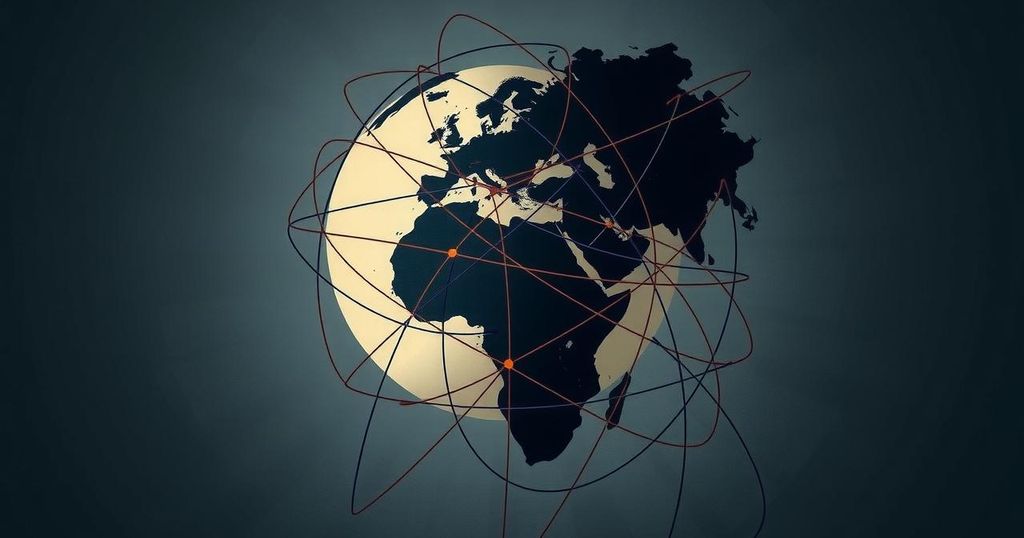World news
AMERICA, ASIA, BLOOMBERG, DEFENSE DEPARTMENT, DONALD TRUMP, DONALD TUSK, EUROPE, FOREIGN POLICY, INTERNATIONAL RELATIONS, IRAN, KYIV, KYIV INDEPENDENT, MILITARY SUPPORT, NORTH KOREA, ODE, OLEKSANDR MEREZHKO, RUSSIA-UKRAINE WAR, S CENTER FOR INTERNATIONAL STUDIES, UKRAINE, US PRESIDENTIAL RACE, VOL, WAR, ZE
Lena Nguyen
0 Comments
Ukraine Reacts to U.S. Military Aid Freeze Amid Rising Tensions
On March 4, Ukraine was shocked by the news of a freeze in U.S. military aid ordered by President Trump, pending Ukraine’s commitment to peace negotiations. The situation escalates pressure on President Zelensky amid concerns that U.S. actions align with Russian interests. Ukrainian officials express anger and resolve, as the nation’s defense strategies pivot towards seeking European support in light of the aid freeze’s implications.
On March 4, unexpected headlines shocked Ukraine, revealing that the U.S. was freezing military aid. Volodymyr Dubovyk, director of Odesa National University’s Center for International Studies, remarked, “It hurts to watch it unfolding.” President Donald Trump reportedly ordered a hold on military assistance until Ukraine’s leaders demonstrate a genuine commitment to peace, although neither Washington nor Kyiv have confirmed this suspension. Reports from Polish Prime Minister Donald Tusk corroborate the freeze claims.
This freeze emerges amid increasing pressure from the Trump administration on President Volodymyr Zelensky, following a tumultuous interaction in the Oval Office that raised doubts about U.S. support for Ukraine. The situation aggravates an already tense relationship between the U.S. and Ukraine, as Russian interests seem to align with U.S. actions, according to some Ukrainian officials. Oleksandr Merezhko, a lawmaker, criticized the administration’s approach, stating, “To stop military aid to Ukraine right now means to help Russia kill Ukrainians with impunity.”
Initially, Trump had positioned himself as an ally of Ukraine, urging Russian President Vladimir Putin to end the invasion. Over time, however, his tone shifted, paralleling rhetoric from the Kremlin; he branded Zelensky as a “dictator” and questioned his legitimacy. Yaroslav Yurchyshyn of the Holos party remarked that Trump’s recent actions suggest an ongoing strategy of prioritizing peace, regardless of Ukraine’s welfare.
The U.S. aid freeze impacts more than $1 billion in military supplies, delaying critical shipments already en route. Bart, a sniper in Ukraine’s Special Operations Forces, expressed his discontent: “America has sided with Russia, North Korea, and Iran… it is its duty to protect world democracy.” Nevertheless, some soldiers maintain optimism regarding their capacity to repel the invasion, emphasizing confidence regardless of the aid situation.
Ukrainian forces remain determined, with soldiers like “Fuko” from the 66th Brigade stating, “We are ready to keep going as long as it takes.” European support persists, and Bart conveyed a belief that while the aid freeze impacts operations, it is manageable. As Ukraine seeks European assistance, the European Commission announced an initiative to enhance defense capabilities, highlighting Europe’s readiness to support Ukraine.
Despite these developments, Ukrainian officials express concerns regarding the critical need for air defense, which predominantly relies on U.S. aid. Lieutenant Colonel Bohdan Krotevych warned, “We must urgently find an alternative because civilians will die if we run out of missiles.” He further urged the Trump administration to comprehend the implications of their policies, indicating potential accountability for their actions in the future.
The freeze of U.S. military aid to Ukraine has sparked outrage and concern among Ukrainian officials and soldiers, as they perceive it as a shift in U.S. foreign policy that prioritizes appeasing Russia. Despite this setback, Ukrainian forces remain resolute in their fight and are looking toward Europe for support. The immediate future holds uncertainties, particularly regarding air defense, which remains critically dependent on U.S. assistance, highlighting the need for alternative solutions.
Original Source: kyivindependent.com




Post Comment